7 Nights / 8 Days
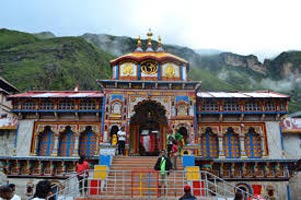
Tour Requirements
For Adults - Photo identification in the form of Voters ID / Passport / Aadhar Card / Driving Licence / Ration card & Carry 4 passport sized photographs.
For students - Photo identification in the form of Passport / Aadhar Card / PAN card Carry original as well as 2 photocopies of school or college Photo Identity card, Carry 4 passport sized photographs.
For Infants - Carry 2 passport sized photographs
Things to Carry
Mobile phone with sim card Along with your necessary clothing and toiletries carry Woolens, Sweater, Shawls, hand sanitizer, , cap, sports shoes, umbrella, Small Portable Oxygen Cylinder, camera etc.If you are on any medication, carry sufficient stock of the medicines with prescription.
Weather
For detailed Information about weather kindly visit www.accuweather.com
Shopping
Salgram Silas, Copper and Brass puja utensils, Stone idols, photographs of Gods Godesses, pictures of temples, Rudraksh Mala made from Rudrakshetc.
Places Covered
Haridwar
Haridwar is an important pilgrimage city, companioned by river Ganges. The river Ganges after flowing for 253 kilometres from its source at Gaumukh, enters the Indo-Gangetic Plains of North India for the first time at Haridwar, which gave the city its ancient name, Gangadwára. Haridwar is viewed as one of the seven holiestplaces to Hindus. Amidst the Kumbha Mela, millions of pilgrims, devotees, and tourists congregate in Haridwar to perform ritualistic bathing on the banks of the river Ganges to wash away their sins. Brahma Kund is located at Har ki Pauri and is considered to be the most sacred ghat of Haridwar.
Ram Jhoola
Ram Jhula is an iron suspension bridge situated at Muni Ki Reti in Rishikesh. It is a connecting bridge between Swargadham, Gita Bhawan and other temples. Built in the 1980s, over the Ganges to cross the river and is also a landmark for city of Rishikesh. Ram jhula is located 3 kilometres north to Rishikesh where some of the Hindu ashrams and religious centers like The Gita Bhawan, and Swarg Ashram are located. Though similar in design, this bridge is bigger than its sibling bridge, Lakshman jhula. This bridge constructed above 59 feet from summer water level.
Laxman Jhoola
Lakshman Jhula is an iron suspension bridge situated in Rishikesh, Uttarakhand. Made over river Ganges to cross the river,Lakshman Jhula is a landmark of Rishikesh near to Ram Jhula. It is believed that Lakshman crossed Ganges on jute ropes between the places where this bridge is built. Lakshman Jhula was built in 1939, offering spectacular views from the bridge. Many temples and ashrams around ends of the bridge attract visitors from different corners of India.
Rishikesh
Rishikesh is located in the foothills of the Himalayas and is known as 'The Gateway to the Himalayas'. Rishikesh is located about 25 km north of holy city, Haridwar. Legends state that Lord Rama did penance here for killing Ravana, and Lakshmana, his younger brother, crossed the river Ganges, at a point, where the present 'Lakshman Jhula' bridge stands today. The sacred river Ganges flows through Rishikesh and leaves the Shivalik Mountains in the Himalayas, flowing out into the plains of northern India. Several temples, ancient with new are found along the banks of the Ganges in Rishikesh.
Nandaprayag
Nandaprayag, also spelt as Nand Prayag is a town in Chamoli district of Uttarakhand. Nandaprayag is one of the Panch Prayag, also known as five confluences of Alaknanda River, and lies at the confluence of Alaknanda River and Nandakini River. The Nandakini River meets the Alaknanda River in Nandprayag, in the Garhwal Himalayas. Once the capital of Yadu Kingdom, Nandprayag is situated 18kms away from Karnaprayag. It is believed that a holy dip in the confluence of Nandprayag is competent of washing all the sins.
Badrinath
Badrinath is a Hindu holy town that is the most important of the four sites in India's Char Dham pilgrimage. Badrinath was re-established as a major pilgrimage site by Adi Shankara in the ninth century and in recent years; its popularity has increased significantly, with an estimated 600,000 pilgrims visiting during the 2006 season, against 90,676 in 1961. Badrinath has been mentioned as a holy place in Hindu scriptures for thousands of years. According to the Bhagavata Purana (3.4.22),"There in Badrikashram the supreme being (Vishnu), in his incarnation as the sages Nara and Narayana, had been undergoing great penance since time immemorial for the welfare of all living entities."
Karnaprayag
Karanprayag one of the Panch Prayag (five confluences) of Alaknanda River, situated at the confluence of the Alaknanda, and Pindar River. Karanpraya is surrounded by an array of glittering peaks, Trisul, Drona Giri, Narad Ghunti, Mrigathuni and Maiktoli. It is believed to be the place where Karna of the Mahabharata worshipped the Sun God. It is said that Karna meditated here for many years to acquire the impregnable shield, which made him a formidable warrior in the battlefield. There is an ancient temple, devoted to Uma and Karna.
Joshimath
Joshimath, also known as Jyotirmath is a city in Chamoli District of Uttarakhand. It is home to one of the four cardinal pithas established by Hindu religion guru, Adi Shankara. Jyotirmath is the northern monastery, one of the four cardinal institutions established by Adi Shankara, the others being those at Shringeri, Puriand Dwaraka. According to the belief initiated by Adi Shankara, this matha is in charge of the Atharvaveda. Jyotirmath is close to the pilgrimage town of Badrinath and this place can also be a base station for travelers going to Guru Gobind Ghat or the Valley of Flowers National Park.
Pipalkoti
Pipalkoti is a small and scenic town situated at 17kms after Chamoli on National Highway- 58. Pipalkoti acts a relaxation point for people traveling to Badrinath, Hemkund Sahib and famous Valley of Flowers. Pipalkoti is nestled amidst lush green mountains and terraced fields and provides delightful views of the snow clad mountains in addition to green hills all around. The place is also known for its restaurants and eat-outs. Travelers can relax at Pipalkoti, getting pleasure from the picturesque views and delicious food.
Rudraprayag
Rudraprayag is one of the Panch Prayag, also known as five confluences of Alaknanda River, the point of confluence of rivers Alaknanda and Mandakini. Alaknanda then proceeds towards Devaprayag where it joins with Bhagirathi River to form the holy, river Ganges. Kedarnath, another important religious place is located 86 km from Rudraprayag. The nearest railway station to place is at Rishikesh. Haridwar railway junction, 24 km further from Rishikesh, has train connections to almost all major cities in India and is, therefore, the railhead for Rudraprayag.
Gauri Kund
Gauri Kund is a significant Hindu pilgrimage site on the way to Kedarnath, nine miles uphill from there. Gauri Kund is connected with Shiva's wife Parvati, who is also known as Gauri in various parts of India. This place is also associated with the legend of how Ganesha acquired a head of elephant. While bathing, Goddess Parvati fashioned Ganesha from the soap suds on her body, breathed life into him and placed him at the entrance as her guard. Lord Shiva happened to arrive at the spot suddenly, stopped by Ganesha. Indignant at this affront, Shiva cut off Ganesha's head and Parvati insisted that the boy be brought back to life. Lord Shiva took the head of a wandering elephant and placed it on Ganesha's body.
Kedarnath
Kedarnath is a Hindu holy town and the most remote of the four Char Dham sites. Kedarnath is located in the Himalayas, about 3584m above sea level near the head of river Mandakini. The site is flanked by breathtaking snow-capped peaks. Kedarnath hosts one of the holiest Hindu temples and the Kedarnath Temple is a popular destination for Hindu pilgrims from all over the world. Kedarnath has been in existence from the Mahabharata era when the Pandavas are supposed to have pleased Lord Shiva by doing penance, here. There are 2 ways to reach Kedarnath, one of them is via foot for a steep 14 km trek through a paved path and second way is by helicopter service.
Devprayag
Devprayag is one of the Panch Prayag of Alaknanda River where Alaknanda and Bhagirathi rivers meet and take the name Ganga or Ganges River. Traditionally, it is considered to be the place where sage Devasharma led his ascetic life. It is one of the five sacred confluences in the hills and is a significant place of pilgrimage for Hindus. "Devaprayaga" means "Godly Confluence" in Sanskrit and according to Hindu scriptures, Devaprayaga is the sacred event of merging two heavenly rivers, Alakananda and Bhagirathi, to form the holy river, Ganges. Devprayag is full of natural beauty and other than Sangam and Raghunath Ji Temple; one can visit nearby sacred places like Danda Naggaraja and Chandrabadni temple.
Srinagar (Pauri Garhwal)
Srinagar is the biggest town in Garhwal hills in Pauri Garhwal district of Uttarakhand. Srinagar came into limelight after becoming the capital of Garhwal Kinghdom when King Ajay Pal with unifying the various chiefdoms founded the Garhwal kingdom. Srinagar was under Gorkha rule from year 1806 to 1815, but after the Gorkhas were defeated by the British, Srinagar became a part of British Garhwal. The old Srinagar was destroyed in the Gohna Lake dam-burst which destroyed the old relics of the town. Auspiciously, today this town is an important cultural and educational centre. Being placed in central Garhwal at a moderate height, Srinagar is an important Valley Bazar in the hills.
Omkareshwar Temple
During the winters, the idols from Kedarnath temple, and Madhyamaheshwar are brought to Ukhimath and worshipped there for six months.Ukhimath can be used as center destination for visiting different places located nearby, i.e. Madhmaheshwar (Second kedar),Tungnath ji (Third kedar) and Deoria Tal (natural fresh water lake) and many other picturesque places. Wedding of Usha (Daughter of Vanasur) and Anirudh (Grandson of Lord Krishna) was solemnized here. By name of Usha this place was named as Ushamath, now known as Ukhimath. During winter the Utsav Doli of Lord Kedarnath is brought from Kedarnath to this place. Winter puja of Lord Kedarnath and year round puja of Lord Omkareshwar is performed here.
Triyuginarayan Temple
Triyuginarayan Temple is a Hindu temple located in the Triyuginarayan village in Rudraprayag district,Uttarakhand. The ancient temple is dedicated to god Vishnu. Its fame is credited to the legend of god Shiva’s marriage to goddess Parvati witnessed by Vishnu at this venue and is thus a popularpilgrimage centre. A special feature of this temple is a perpetual fire, that burns in front of the temple. The flame is believed to burn from the times of the divine marriage. Thus, the temple is also known as Akhand Dhuni temple. The word "Triyugi Narayan" is formed of three words "tri" means three, "yugi" denotes the period of time - Yuga and "Narayan" is another name of Vishnu. Pilgrims have been offering wood to the fire in the havana-kund (fireplace) since the three Yugas - hence the place is given the name “Triyugi Narayan” According to Hindu mythology, goddess Parvati was daughter of Himavat or Himavan - the personification of the Himalayas. She was the rebirth of Sati, the first wife of Shiva - who sacrificed her life when her father insulted Shiva. Parvati initially tried to allure Shiva by her beauty, but fails. Finally, she won Shiva by practising rigorous penance at Gauri Kund, which is 5 kilometres (3.1 mi) away from Triyuginarayan.Horse Ride, Doli, Jeep charges etc. Portages, Laundry, Tips exp. Ropeway charges at Mansa Devi Temple. Govt. Service Tax. Any other item not specified in the itinerary.
Departure to Haridwar ( 205 kms. / 7 hrs. Night Journey )
Night Journey
Arrival at Haridwar. After fresh up in choultry & breakfast. Proceed to Rishikesh ( 24 kms. ). Visit Shivananda Ashram, Ram Jhoola, Swarg Ashram, Geeta Ashram, Lakshman Jhoola . After lunch drive to Srinagar ( 105 kms. / 4 hrs. ).
Night Stay: - Srinagar
After Breakfast, depart from Srinagar to Dharee Devi Temple - Kaliya Saur (15 Kms). Later proceed to Rudraprayag (35 Kms), the confluence point of 2 Holy rivers - Alaknanda and Mandakini, have sangam view of Alknanda & Mandakkini and then drive to Okhimat (42 Kms ), visit Shri Omkareshwar Temple (This is the place where the Pooja is performed for 6 months while the Kedarnath Shrine is closed). Later drive to Gupta Kashi (10 Kms), visit Shri Kashi Viswanath Temple (Arthanariswar Temple) and further to Rampur (24 Kms), check into Hotel. Evening at leisure.
Night Stay:- Rampur
Depart to Gaurikund. Proceed to Kedarnath, after performing Pooja & Darshan of Shri Kedarnath ji return to Gaurikund and then to Rampur by Coach (16 Kms.). NOTE:
Incase you are travelling by Helicopter/Walk/Pony/Doli, the return will be on the same day with night stay at Rampur.
Those who are travelling by Walk (19 Kms. approx. each way) / Pony / Doli, have a start the trek early in the morning of Day 4, so that you can come back on the same day.
For those who are not able to go or get the Registration for visiting Kedarnath, the alternative programme for Day 4 would be as follows:After breakfast, proceed to Triyuginarayan Temple (19 Kms - one way), the Holy place where Lord Shiva and Parvathi got married. Tourists will have to go there by local jeep. Later driver to Gaurikund to visit GauriMata Temple. Then drive to Rampur, on the way you may visit Mund Katiya Temple (Ganesh Temple) (3 kms./ 20 min.). Passengers will have to trek for 500 mts. (One side) Which is a narrow route. Return to Rampur. Evening visit Durga Temple at Rampur half a kilometer by trek. The buses cannot play /movie in the places mentioned in the alternate tour itinerary. The passengers will have to hire jeeps /cars available locally, for which the cost will be approximately Rs.250/- to 500/- per head, which will be borne by the passengers.
Night Stay:- Rampur
Departure to Badrinath (238 kms / 12 hrs.). Upon arrival, check into hotel.
Night Stay:- Badrinath
Morning after darshan of Shri Badrinath ji, visit Mana Village, the last Village before the Tibetan border. After Lunch drive to Pipalkoti (79 Kms. / 4 hrs.). Upon arrival, check into hotel.
Night Stay:- Pipalkoti
Departure to Haridwar ( 241 Kms./10hrs.) Have a holy bath in Ganges, and harati in Ganges at Hari-Ki-Pauri in the evening. After dinner Proceed to Delhi.
Night Journey:- Overnight Journey
Tour End
Call Trip was founded in the year 2016 with the motive to offer undoubted assurance and absolute ease to travel. Our company delivers world-class, hassle-free holidaying in India, thereby helping clients to enjoy the bliss of travelling. Mr. Swatantra Sharma and Mr. Ganesh Kumar together serve the company as its CEOs. Their motto is to take this company to unimaginable heights of success. The company is based out in Dwarka, New Delhi (India). Read More...

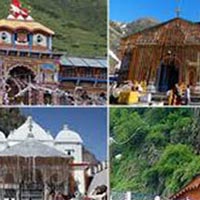 12D/11N
12D/11N
Super Saver Char Dham Yatra Tour
New Delhi - Haridwar - Barkot - Uttarkashi - Rudraprayag - Srinagar - Sitapur - Cha..
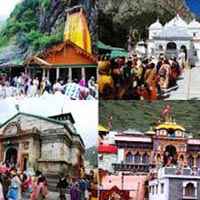 12D/11N
12D/11N
New Delhi - Haridwar - Barkot - Uttarkashi - Chamoli - Rudraprayag - Rishikesh - Pi..
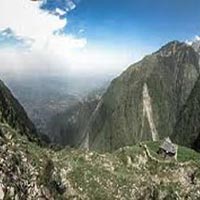 6D/5N
6D/5N
Pathankot - Dharamshala - Dalhousie - Khajjiar - Chamba
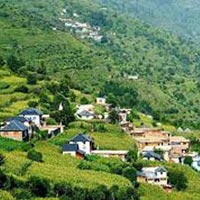 6D/5N
6D/5N
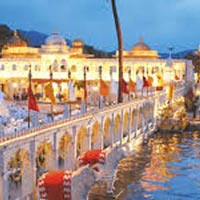 3D/2N
3D/2N
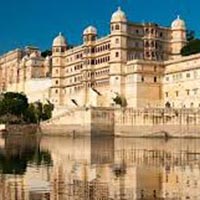 3D/2N
3D/2N
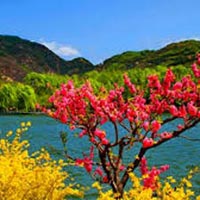 4D/3N
4D/3N
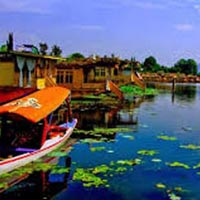 5D/4N
5D/4N
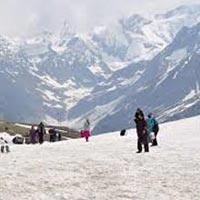 6D/5N
6D/5N
Magnificent Shimla Manali Tour
New Delhi - Shimla - Kufri - Manali - Rohtang Pass
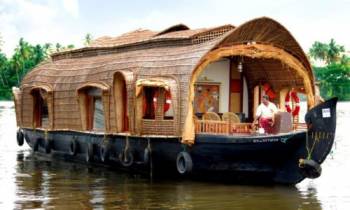 8D/7N
8D/7N
 8D/7N
8D/7N
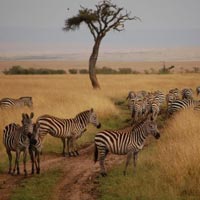 8D/7N
8D/7N
 8D/7N
8D/7N
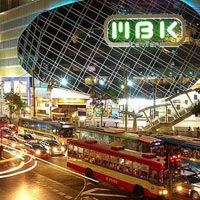 8D/7N
8D/7N
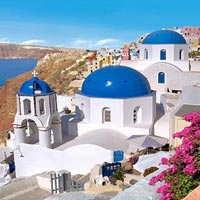 8D/7N
8D/7N
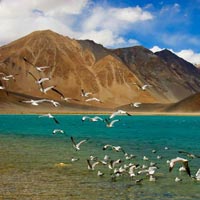 8D/7N
8D/7N
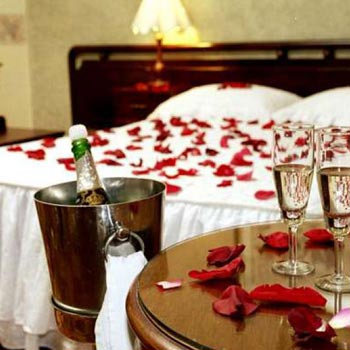 8D/7N
8D/7N
Delhi Shimla Manali Honymoon Package
New Delhi - Shimla - Manali - Chandigarh City
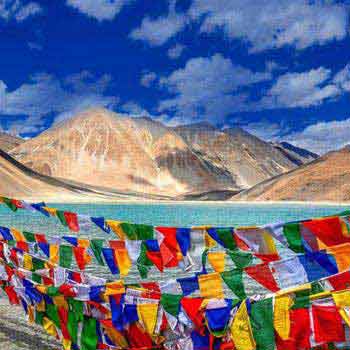 8D/7N
8D/7N
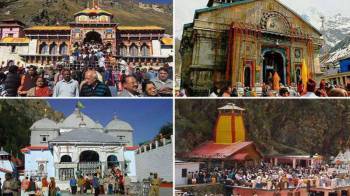 11D/10N
11D/10N
10 Nights - 11 Days Char Dham Yatra Pack..
Kedarnath - Badrinath - Yamunotri - Gangotri - Rishikesh - Rudraprayag - Uttarkashi..
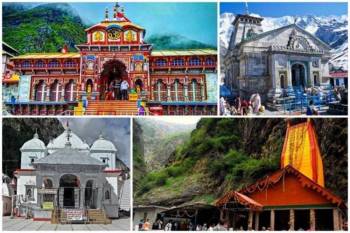 11D/10N
11D/10N
11 Days Uttarakhand Tour From Haridwar
Haridwar - Kedarnath - Badrinath - Yamunotri - Gangotri - Rishikesh - Barkot - Gupt..
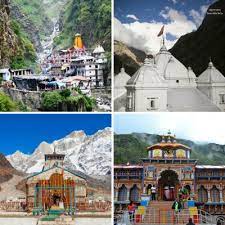 11D/10N
11D/10N
10 Night 11 Days Uttarakhand Tour Packag..
Kedarnath - Badrinath - Yamunotri - Gangotri - Rishikesh - Rudraprayag - Uttarkashi..
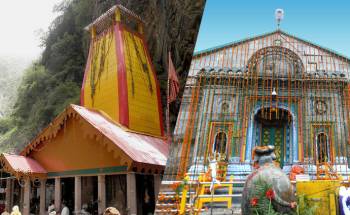 11D/10N
11D/10N
10 Night Uttarakhand Tour From Haridwar
Haridwar - Kedarnath - Badrinath - Yamunotri - Gangotri - Rishikesh - Barkot - Gupt..
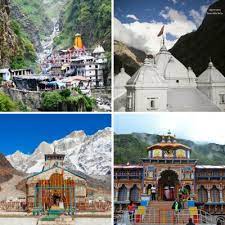 11D/10N
11D/10N
10 Night 11 Days Uttarakhand Tour Packag..
Kedarnath - Badrinath - Yamunotri - Gangotri - Rishikesh - Rudraprayag - Uttarkashi..
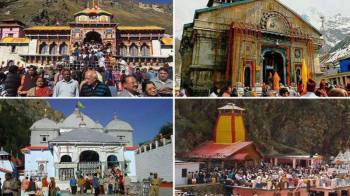 10D/9N
10D/9N
Uttrakhand Tour Package 9 Night - 10 Days
Haridwar - Kedarnath - Badrinath - Yamunotri - Gangotri - Uttarkashi - Guptakashi
 10D/9N
10D/9N
Uttarakhand Tour Package 9 Nights - 10 D..
Haridwar - Kedarnath - Badrinath - Yamunotri - Gangotri - Uttarkashi - Guptakashi
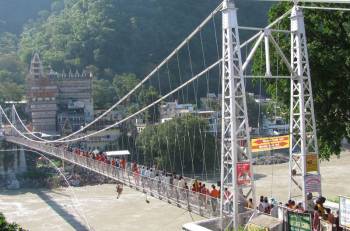 4D/3N
4D/3N
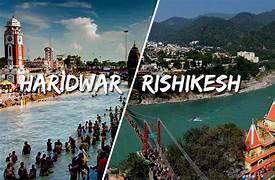 2D/1N
2D/1N